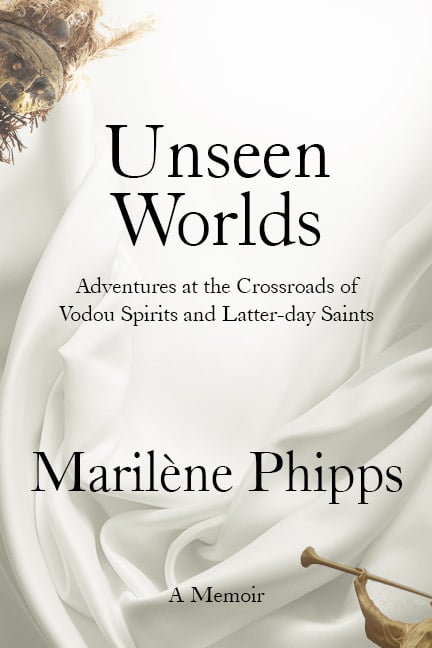The questions remain: Who are we? Where do we come from? Where are we going? The same issues were addressed when Sigmund Freud advised us that an unanalyzed life is not worth living.
In my book, Unseen Worlds, I am however addressing these questions with an emphasis on a spiritual framework rather than a psychoanalytical one. My book is both a memoir and an invitation to travel. It tells about Haiti’s, my family and my own struggles to outgrow political and personal history, and rearticulate who we are.
Yes, there is tragedy—it started with Christopher Columbus in 1492—foreign occupation and slavery lasting for 298 years until the year 1790, when African slave rebellions finally started. But tragedies still continue…
We are larger than what tragedy does to us, both in our earthly and divine identities. We are made in God’s image. We have to reflect that.
My memoir has a focus and a context. An entire life cannot be told in a single book. A focus enriches and broadens the writer’s understanding of life lived. This analytical process is a kind of study of the esthetics of identity, involving culture, socio-political milieu, and spiritual imagination.
The conscious focus in Unseen Worlds was my search for the Holy Grail—a spiritual journey enlivened by unusual friendships and singular experiences. Yet, one writer friend found my book to be essentially a grief memoir; another thought it to be about the redemption of three men—my father, godfather, and brother. I marvel how the intelligent love of friends helps us see ourselves with new clarity.
The context of my memoir involves my Caribbean birth island of Haiti. This inevitably sets parameters, specifies identity and a sense of place, even a spirit.
The Phipps family has been in Haiti since 1805. James Phipps, an Englishman, was naturalized Haitian by Jean-Jacques Dessalines himself, father of the slave revolution. Every generation of Phipps thereafter produced a revolutionary who fought against the established government (overthrowing President Boyer in 1843, or fighting the populist President Salnave in 1870). In my generation, it was my cousin and godfather, Guslé Villedrouin who led Jeune Haiti—the group of thirteen young men who knowingly gave their lives in 1964 to save Haitians from the dictatorship of Francois Duvalier. Learning about their plans to invade the island and overthrow the government, my aunt pleaded with her 23 year old son in the streets of New York, “Don’t go… they will kill you…” He replied calmly, “Mother, I am already a dead man.”
Haitians are a profoundly spiritual people. From drums to bells, the divine calls us, and we respond with every pore of our being. My search is not unusual for a Caribbean person; the same urge is also found throughout human history. We are all crusaders. We can learn from each other’s stories. Encounter mine here.

Please check the link below to preview or purchase my book

